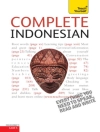This highly readable text demystifies the qualitative research process—and helps readers conceptualize their own studies—by organizing the different research paradigms and traditions into coherent clusters. Real-world examples and firsthand perspectives illustrate the research process; instructive exercises and activities build on each other so readers can develop their own proposals or reports as they work through the book. Provided are strategies for selecting a research topic, entering and exiting sites, and navigating the complexities of ethical issues and the researcher’s role. Readers learn how to use a range of data collection methods—including observational strategies, interviewing, focus groups, e-mail and chat rooms, and arts-based media—and to manage, analyze, and report the resulting data. Useful pedagogical features include:*In-class and field activities to apply qualitative concepts.*Discussion questions, proposal development exercises, and reflexive journal activities.*Exemplary qualitative studies and two sample proposals.*Cautionary notes, or ‘Wild Cards, ‘ about possible research pitfalls.*Tables that summarize concepts and present helpful tips.
Tabela de Conteúdo
I. Foundations of Qualitative Inquiry1. Introduction to Qualitative Inquiry• Chapter Preview• A Rationale for Qualitative Research• Characteristics of Qualitative Research• The Qualitative–Quantitative “Debate”• A Brief History of Qualitative Inquiry• Qualitative Inquiry Today: Applied Research in Clinical and Educational Settings• Building a Research Agenda• The Top 10 Points to Consider about Qualitative Research• Chapter Summary• Recommended Readings2. Qualitative Research Paradigms and Traditions• Chapter Preview• A Cautionary Note• Philosophies of Science• Research Paradigms• Research Traditions• The Universal Tradition: Case Study• Experience and Theory Formulation: Grounded Theory, Phenomenology, Heuristic Inquiry, and Consensual Qualitative Research• The Meaning of Symbol and Text: Symbolic Interaction, Semiotics, Life History, Hermeneutics, and Narratology• Cultural Expressions of Process and Experience: Ethnography, Ethnomethodology, and Autoethnography• Research as a Change Agent: Participatory Action Research• Chapter Summary• Recommended Readings3. Ethical Issues in Qualitative Research• Chapter Preview• A Case for Ethics in Qualitative Research• A Brief History of Research Ethics• Ethical Guidelines in Clinical and Educational Disciplines• Key Ethical Concepts in Qualitative Research• Additional Ethical Considerations in Qualitative Inquiry• Chapter Summary• Recommended Readings II. Qualitative Research Design4. Selecting a Topic• Chapter Preview• Selecting a Topic• Research Goals• Conceptual Framework• Purpose Statement• Research Questions• Is a Mixed Methods Approach Suitable?• Chapter Summary• Recommended Readings5. Understanding the Researcher’s Role• Chapter Preview• Researcher Reflexivity• Subjectivity in Qualitative Inquiry• “Voice” of Participants in Qualitative Research• Use of Peer Debriefers• To Use a Research Team—or Not?• Chapter Summar• Recommended Readings6. Entering the Field• Chapter Preview• Entering the Field• Choosing a Sampling Method• Purposeful Sampling Methods• Sample Size• Selecting and Entering a Site• Building Rapport with Gatekeepers, Stakeholders, and Key Informants• Exiting the Field• Chapter Summary• Recommended Readings7. Maximizing Trustworthiness• Chapter Preview• What Is “Good” Research?• Validity and Qualitative Research• Role of the Researcher, Revisited• Criteria of Trustworthiness• Strategies of Trustworthiness• Considerations in Establishing Trustworthiness• Chapter Summary• Recommended Readings III. Data Collection and Analysis8. Data Collection via Fieldwork, Interviewing, and Focus Groups• Chapter Preview• Linking Method to Research Design• Observations• Individual Interviews• Focus Group Interviews• Other Data Collection Considerations• Triangulating Individual and Focus Group Interview Data• Chapter Summary• Recommended Readings9. Data Collection Using the Internet, Documents, or Arts-Based Methods• Chapter Preview• General Reminders about Selecting Data Collection Method(s)• Media as Method and Source of Data Collection• Using the Internet for Data Collection• Using Visual Methods for Data Collection• Using Written Materials for Data Collection• Using Other Documents for Data Collection• Chapter Summary• Recommended Readings10. The Basics of Qualitative Data Management and Analysis• Chapter Preview• Qualitative Data Analysis• Steps of Qualitative Data Analysis• Coding Considerations• Additional “Generic” Strategies of Qualitative Data Analysis• Qualitative Data Management• Case Displays• Qualitative Software• Chapter Summary• Recommended Readings11. Qualitative Data Analysis by Research Tradition• Chapter Preview• General Thinking on Qualitative Data Analysis across Traditions• Qualitative Data Analysis with the Universal Tradition: The Case Study• Qualitative Data Analysis in Experience and Theory Formulation: Grounded Theory, Consensual Qualitative Research, Phenomenology, and Heuristic Inquiry• Qualitative Data Analysis with Symbol and Text: Narratology, Biography, and Hermeneutics• Qualitative Data Analysis of Cultural Expressions of Process and Experience: Ethnography, Ethnomethodology, and Autoethnography• Qualitative Data Analysis When Research Is a Change Agent: Participatory Action Research• Postscript: A Final Note on Qualitative Data Analysis• Chapter Summary• Recommended Readings IV. Presenting Your Qualitative Research12. Writing and Presenting Qualitative Research• Chapter Preview• Developing a Research Proposal• Writing a Quality Proposal• Writing the Research Report• Presenting Your Findings in Student and Professional Settings• Publishing your Findings• Chapter Summary• Recommended Readings Appendix A. Glossary of Key Terms Appendix B. Sample Qualitative Proposals
Sobre o autor
Danica G. Hays, Ph D, LPC, NCC, is Associate Professor of Counseling and Chair of the Department of Counseling and Human Services at Old Dominion University. Her research interests include qualitative methodology, assessment and diagnosis, trauma and gender issues, and multicultural and social justice concerns in counselor preparation and community mental health. She has published numerous articles and book chapters and has coauthored or coedited three previous books. Dr. Hays is the Founding Editor of the journal Counseling Outcome Research and Evaluation. She is a recipient of the Outstanding Research Award, Outstanding Counselor Educator Advocacy Award, and Glen E. Hubele National Graduate Student Award from the American Counseling Association, as well as the Patricia B. Elmore Excellence in Measurement and Evaluation Award and President’s Special Merit Award from the Association for Assessment in Counseling and Education. Anneliese A. Singh, Ph D, LPC, is Associate Dean for Diversity, Equity, and Inclusion in the College of Education and Associate Professor in the Department of Counseling and Human Development Services at the University of Georgia. Her clinical, research, and advocacy interests include LGBT youth, Asian American/Pacific Islander counseling and psychology, multicultural counseling and social justice training, qualitative methodology with historically marginalized groups (e.g., people of color, LGBT individuals, immigrants), and feminist empowerment interventions with survivors of trauma. Dr. Singh is passionate about helping students and early-career professionals to develop their academic writing skills and their writing voices. She has conducted numerous seminars and workshops on academic writing at the graduate level, in addition to teaching writing courses at the doctoral level. The recipient of numerous awards for her scholarship, Dr. Singh is a prolific writer, with more than 100 peer-reviewed journal articles, book chapters, and other professional publications. Her books include Qualitative Inquiry in Clinical and Educational Settings (coauthored with Danica G. Hays) and Successful Academic Writing: A Complete Guide for Social and Behavioral Scientists (coauthored with Lauren Lukkarila).












